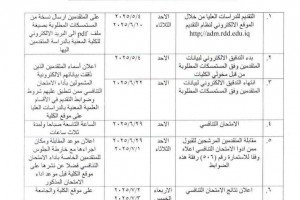
A master's thesis in the Department of Food Science, College of Agriculture, University of Basrah discussed (the effect of replacing animal fats with vegetable oils on the qualitative characteristics of beef burger). The thesis of the researcher (Ola Zahir Abdel-Aali), under the supervision of (Professor Umm Al-Bishr Hamid Jaber), included preparing beef burgers with low fat content by replacing animal fat with vegetable oils, which included olive oil, sesame oil and sunflower oil, as vegetable oils were extracted from their sources. And the diagnosis of its content of saturated fatty acids and unsaturated fatty acids by a gas chromatography device connected to a mass spectrometer. Animal fat was replaced with vegetable oils at 25%, 50%, 75% and 100% in Berker tablets. The chemical composition of the prepared Berker replaced with vegetable oils was studied, including protein, fat, moisture, ash, carbohydrates and cholesterol, then stored by freezing at a temperature of (-18 ± 2) °C. For a period of 90 days, the changes in the chemical indicators were monitored, which included the value of peroxide, thiobarbituric acid, and free fatty acids, and the physical characteristics that included water carrying capacity, pH, weight loss during dissolving, weight loss during cooking, cooking yield, and shrinkage ratio in diameter. And the percentage of retained moisture, the percentage of retained fat and the organoleptic characteristics that included color, flavor, freshness, juiciness and general acceptance during the storage period of 30, 60 and 90 days. The study concluded that the source of fat and the replacement ratios significantly affected the chemical content of the Berker in which the fat was replaced, and the effect was clear at the 75% and 100% replacement rates, especially in the fat and cholesterol content. It was noted that there was a significant decrease in each of the values of peroxide, thiobarbituric acid and the percentage of free fatty acids by increasing the percentage of replacement. A significant increase was also observed in the water carrying capacity, moisture and fat retained ratios by increasing the replacement ratios. The results showed a decrease in the percentage of weight loss during cooking, shrinkage rate and a rise in yield compared to the control sample. The storage period significantly affected all the studied qualitative characteristics. The results of the sensory evaluation of Berker showed that the treatments containing Substitution rates of 25% and 50% obtained the highest evaluation scores compared to the other substituted transactions, with the other transactions obtaining evaluation scores within the acceptable range. The study recommended replacing animal fat with vegetable oils by 25% and 50% in preparing a low-content Berker meat product to obtain an acceptable product in terms of sensory and health characteristics. These treatments obtained the highest evaluation degrees compared to the control treatment (20% fat).







